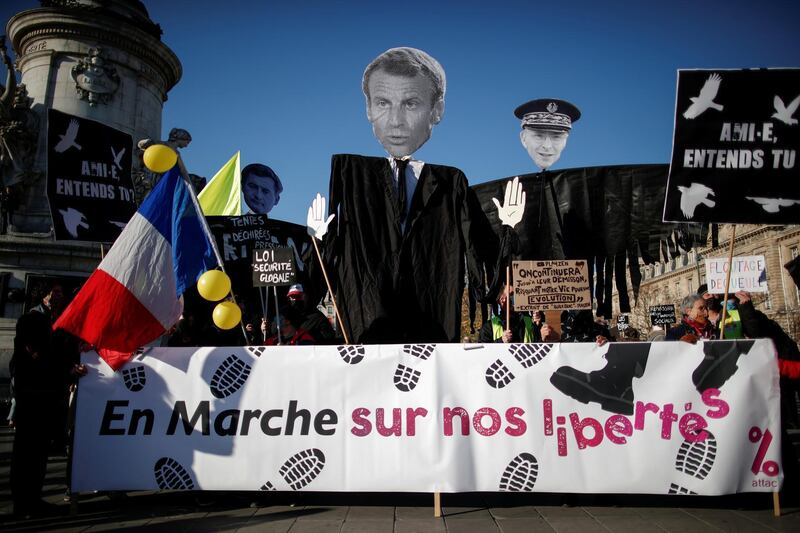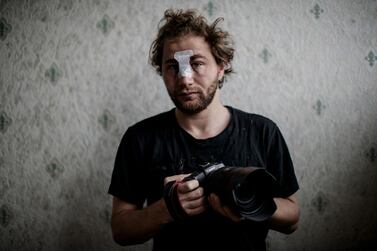French President Emmanuel Macron's ruling party agreed on Monday to completely rewrite a draft plan that would limit freedom to share images identifying police officers, after large protests over the weekend against police violence.
More than 133,000 people, including 46,000 in Paris, demonstrated against the draft bill and in favour of free speech on Saturday.
The rallies followed video footage of a black man being beaten up by three police officers inside his own music studio this month, in an attack Mr Macron called "shameful" for France.
A provision in the draft law known as article 24, a key plank in Mr Macron's plans to court right-wing voters by being tougher on law before his 2022 re-election bid, sparked outrage in the media and on the left of his own party.
"We propose a new version of Article 24 and a new version will be submitted," said Christophe Castaner, head of Mr Macron's Republic on the Move party in the lower house of Parliament.
Article 24 did not ban outright sharing images of the police, but made it a crime, punishable by a year in prison and a €45,000 ($54,000) fine, to share them with an "obvious intention to harm".
French journalists and the government's own independent ombudsman on human rights said the article was too vague and could deter people wanting to expose police brutality.
The footage showing the violent arrest of Michel Zecler in his studio, which prompted international criticism, made it even less tenable for Mr Macron to press on with Article 24, French officials said.
"We acknowledge that there are doubts, that some people consider that the right to inform is under threat," Mr Castaner said. "That is why it is necessary to clarify it."
Mr Macron held an emergency meeting on the bill at the Elysee palace earlier on Monday with leaders of his parliamentary majority and his Interior Minister, Gerald Darmanin, a former conservative.
Many of his more centre-left followers have expressed dismay at what they regard as the president's "conservative turn" in recent months.
The stated aim of the broader "general security" bill is to provide better protection for French police.
Their unions said officers were under heavy strain after months of violent "yellow vest" protests.
A new version of Article 24 will be submitted at a later date, officials said, although it remained unclear when, because the bill, approved last week by the lower house, has been sent to the upper house, where the conservatives have a majority.







